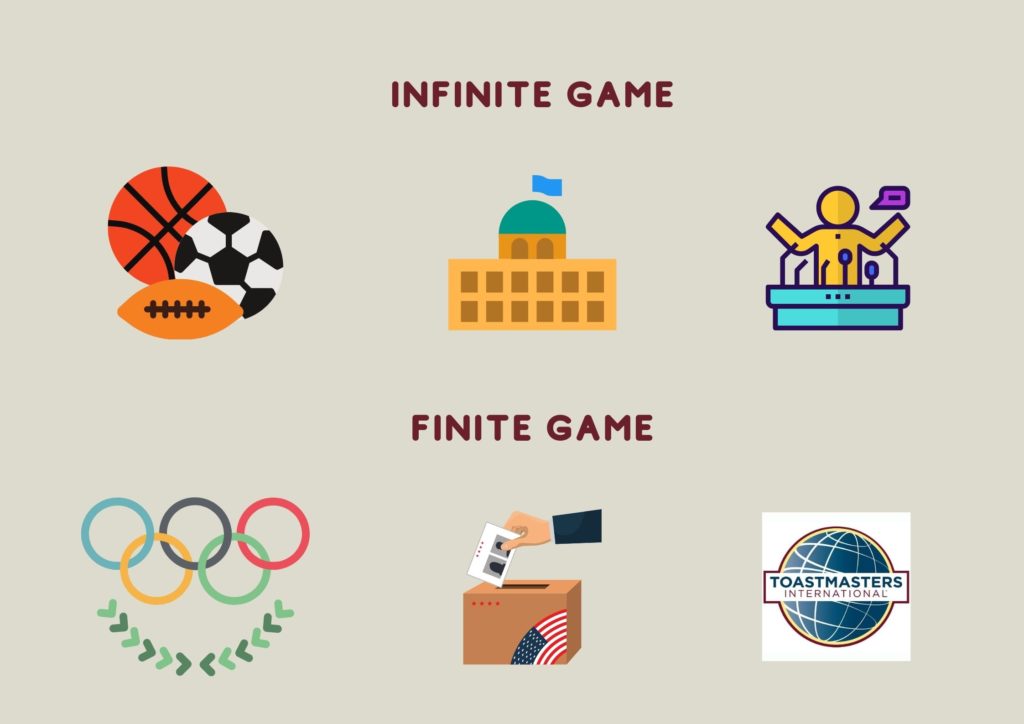Let us start with a game! Here are three things that belong to the same group and tell me the name of the group: first group has sports, politics, public speaking as its elements, and the second group has Olympic Games, presidential elections, Toastmasters event as its element.
What could be the name of each of the groups, their common ground?
Before I reveal my answers, let me tell you about a book that has had a huge impact on me since I was published in 2019. It is called the Infinite Game and was written by Simon Sinek, heavily relying on James Carse’s book about game theory. I was reminded how much I enjoyed learning about game theory and the concept of finite and infinite games when listening to Simon’s podcast (Bit of Optimism) in which he talks to doctor Carse and they discuss their views about this.
They agree that fundamentally playing an infinite game requires an infinite mindset and a love of the game. But let us finally define the two:
1. Finite game: has an agreed upon objective and a fixed set of rules and a fixed set of players. Metrics can be applied to measure the end result and the game is time-bound.
2. Infinite game: has no fixed rules, there are always new players entering the game, and basically lasts forever.

If we think about areas of our life, you will soon discover a pattern: education is an infinite game, but a school contest is a finite one. Business is infinite, but a day on a stock market seems very finite indeed. Marriage and relationships in general are pretty infinite, too, but a wedding day is finite. Drawing on this comparison you have probably guessed that sports games are finite, because their objective is to have a winner at the end. But sports itself, on a conceptual level is an infinite game. Similarly – politics is an infinite game, but presidential elections (or any kind of elections, for that matter) are a finite game.
One could assume that the simile can be applied to the public speaking-Toastmaster event duo, and although it is true that public speaking is an infinite game, I would argue that a Toastmasters event is not a finite game. It is true that there is a fixed number of players (2-3 prepared speakers and 4-5 impromptu speakers per event), that there is an agreed upon objective (give an awesome speech using all the tricks and tips of the trade) and it is of course time-bound (90 minutes). But the game does not end there. Speakers and role takers receive evaluations from other participants well beyond the event is closed. Participants dwell on the messages of the speeches and the evaluations days after the event. In other words, Toastmasters may look like an infinite game on the outside, but it is actually an infinite one.

People who love playing the game itself (instead of being in it only for the win) enjoy playing with Lego, Rubik cube and any other game where winning is not the aim. The side effect of these kinds of games is that they provide a level of satisfaction that raises our endorphine and serotonin levels and therefore get us hooked easily. As Brené Brown describes her own field of work as a “drugless trip” I have to smile and think: “What a great description!’. After one or two meetings, you are hooked. After three or four and you are hooked for a bit longer. After several speeches and great events you are hooked for life. The good news is, you never have to quit – because Toastmasters is here to stay.*
*what is more, it is now accessible from the comfort of your home
